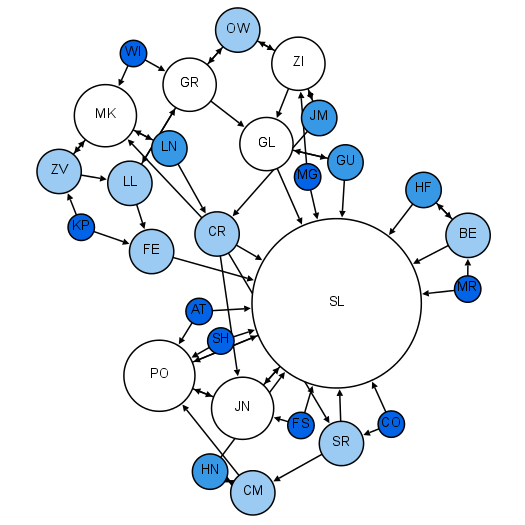Friendship Paradox (part 1)
The Friendship Paradox states that on average your friends have more friends than you do. To be more specific, if you take the average number of friends of all your friends, that average will probably be greater than your count of friends.
This would seem to not be possible, but it is true.

For part 1 on this subject, I ran two experiments. In both each person had a charisma factor, ranging from 0 to 1. The probability of any two people being friends was the average of the charisma factors.
Experiment #1
- Number of people in group = 25
- Charisma factor of each person = 0.5
- Simulation size = 35 million
- Probability somebody has more friends than his friends = 42.0%
- Probability somebody has equal number of friends as his friends = 1.2%
- Probability somebody has less friends than his friends = 56.7%
- Average friends per person = 12
- Average friends of friends = 12.5
Experiment #2
- Number of people in group = 25
- Charisma factor of each person = Random, chosen from the uniform distribution from 0 to 1.
- Simulation size = 39 million
- Probability somebody has more friends than his friends = 48.1%
- Probability somebody has equal number of friends as his friends = 0.4%
- Probability somebody has less friends than his friends = 51.4%
- Average friends per person = 15.544
- Average friends of friends = 16.985
In both cases, the “paradox” held true, that one’s friends have more friends than you do yourself.
Next week I will examine why this apparent paradox is in fact true.

More information: Wikipedia page on the Friendship Paradox




